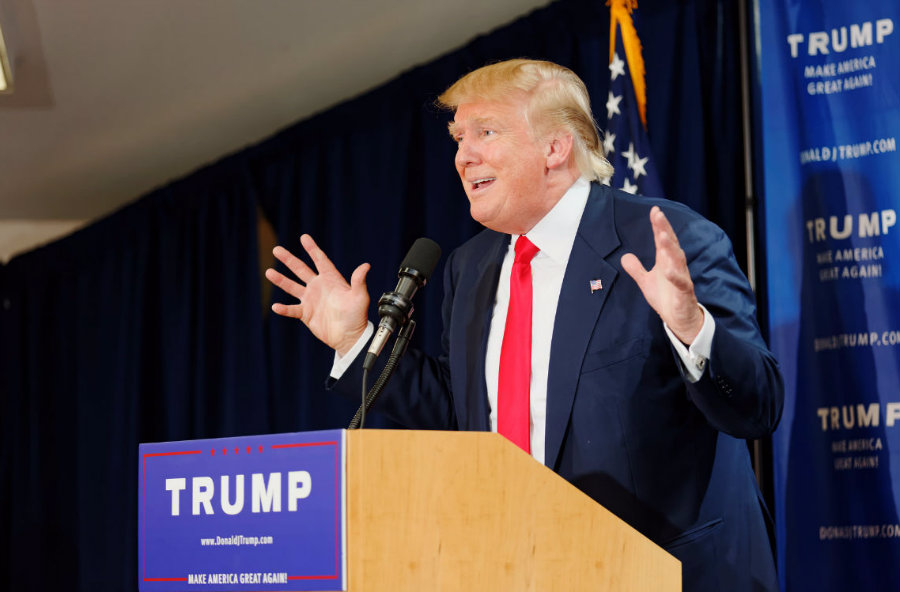A new survey released by the Pew Research Center showed how a vast majority of Americans support vaccination as a requirement for students in public schools.
The current U.S. President Donald Trump, among other prominent personalities, have stated their disconformity with vaccines, but the report published this Thursday show how an overwhelming majority of citizens accept vaccines as part of the requirements for public school’s students. The vaccination program that includes vaccines for measles, mumps, and rubella, is approved by 82 percent of Americans.

Along with this overall perception, the survey also showed how people see vaccinations as beneficial for health. 88 percent of Americans don’t think there is any risk of taking a vaccine, while 73 percent said that vaccines grant huge preventive health benefits. Also, 66 percent of surveyed persons stated that there is a little risk of side effects.
This survey was done after the Presidential election of November, and its results come in a moment where there is tension among experts of the medical field. Many scientists are worried about Trump’s acceptance to several unfounded claims regarding the safety of vaccine procedures. Trump even has stated that he is considering the creation of a vaccine commission, even when the Centers for Disease Control and Prevention (CDC) has a similar committee composed of experts in the medical field.
This commission is called Advisory Committee on Immunization Practices, and according to many experts, it works really great. It has more than 50 years functioning with the CDC and the Department of Health and Human Services, as the committee provides both agencies with expert information and recommendations regarding the use of vaccines in the country.
Trump’s posture against vaccines
Donald Trump has had a long time bashing on the safety of vaccines. Even in his campaign, he met with several anti-vaccine figures like British ex-physician Andrew Wakefield, a long-time skeptic on the vaccine issue. Wakefield was one of the authors of the studies that tried to prove the risk of vaccines connecting them to autism. The investigation was ultimately discredited, but Wakefield still started the modern anti-vaccine movement.
Trump also met with Robert F. Kennedy Jr in January, as Kennedy is known for being an advocate for the studies that link vaccines to autism. In that meeting, as Kennedy said after, they discussed the possibility of the creation of the vaccine commission and even talked about the chance of him being the chairman of the committee.

Rosalynn Carter, the wife of the ex-President Jimmy Carter, said that he wanted to meet with Melania Trump to discuss the vaccine issue. Carter is the co-founder and current President of Every Child by Two, a vaccine advocacy group.
“We offered to bring experts to the table to explain all the science that has already been conducted on the safety of vaccines and the safety systems that are already in place that would make the commission redundant and unnecessary,” Amy Pisani, the group’s executive director, said in an interview this week.
Many celebrities, public figures, and conspiracy theorists have fueled the public concern regarding the actual safety of the use of vaccines. This happens even when a large group of medical experts and scientists have made studies that prove that there is no connection between vaccines and autism. Even then, the people is still encouraged to be worried by some prominent characters.
Survey findings
One of the most surprising results showed how many Americans above 65 years old support vaccine as a requirement. 90 percent of elders are in favor, while 9 percent states that parents must be able to decide. In another age spectrum, Americans younger than 50 years old, they support the vaccines as a requirement for kids in 80 percent of the cases.
The survey also demonstrated that the most concerned Americans on this vaccine issue are the parents of younger children. Just a little more than 50 percent of parents with kids below four years old say that there is low risk in vaccinations, while 43 percent of them think that there is medium to high risk.
According to each ethnic group, the results were different. For example, African American citizens believe that vaccines present greater risk and lower benefits than white or Hispanic people. Also, the results showed how people with low knowledging of science aspects has a higher fear of vaccines in general.
“Public health benefits from vaccines hinge on very high levels of immunization in the population, so it’s important to understand which groups hold reservations about the MMR vaccine,” said Cary Funk, the report’s lead author.
Both political parties seem to be for approving a vaccination program that makes vaccines a requirement in public schools. Conservatives do present disconformity with this measure, in comparison with moderates or liberals. In any case, a vast majority of Americans approves vaccines in this issue, as the survey included 1,549 adults in 50 states and the District.
Source: Pew Research Center
